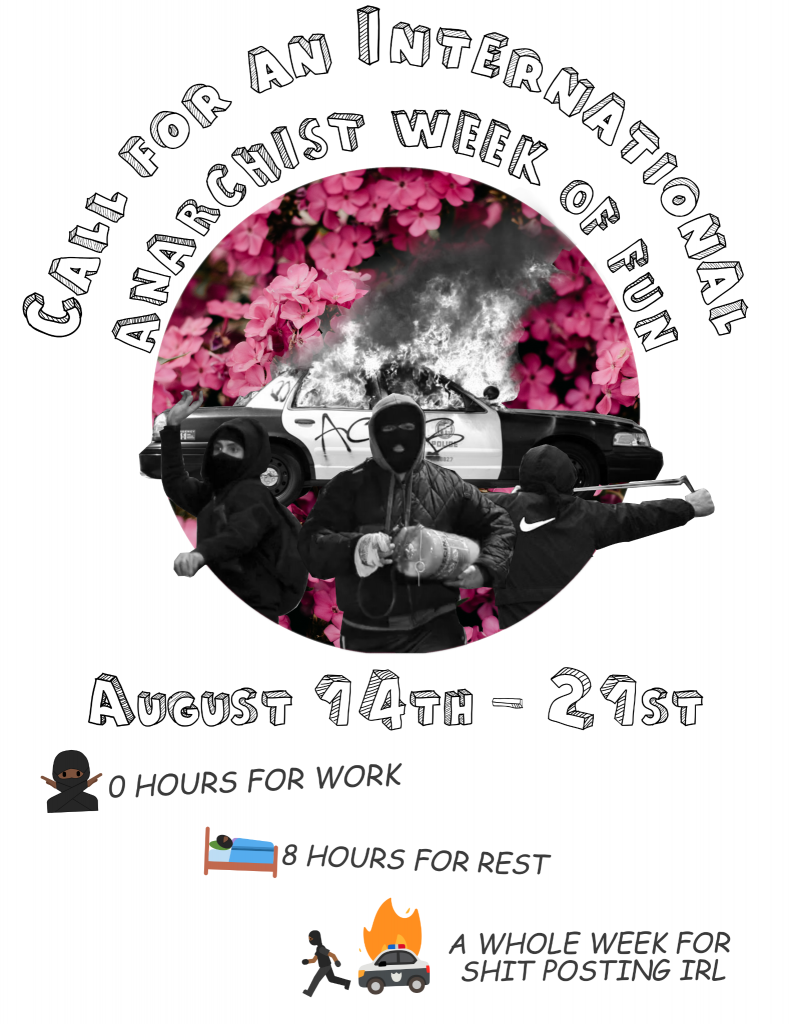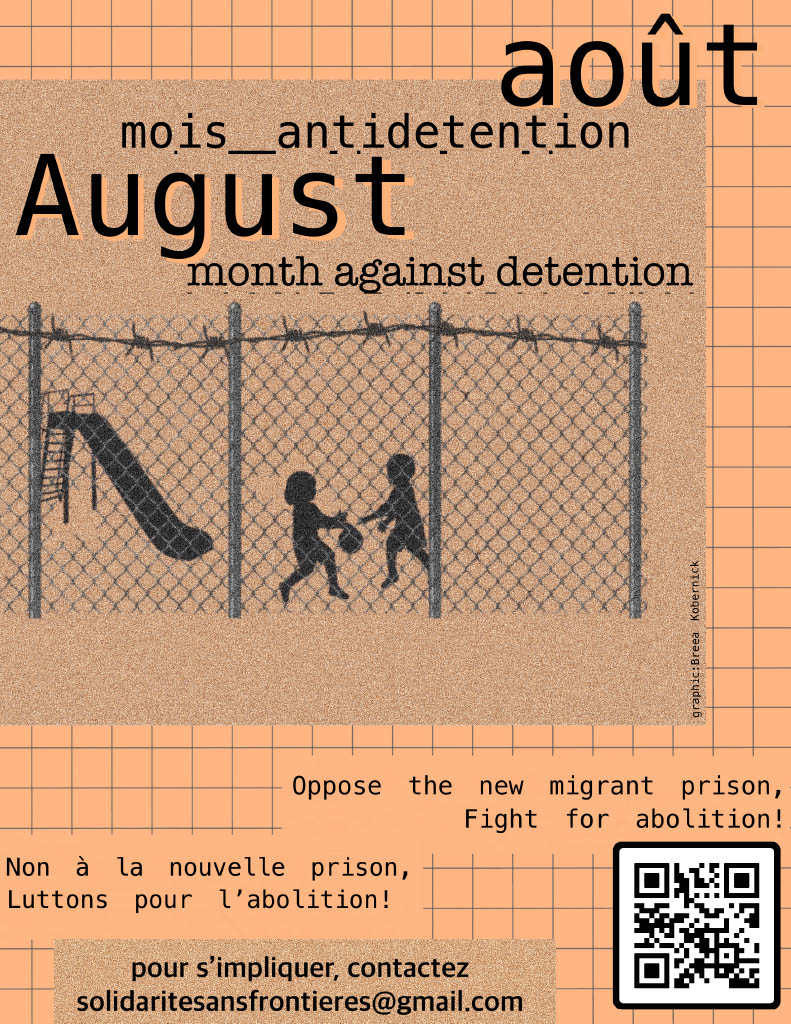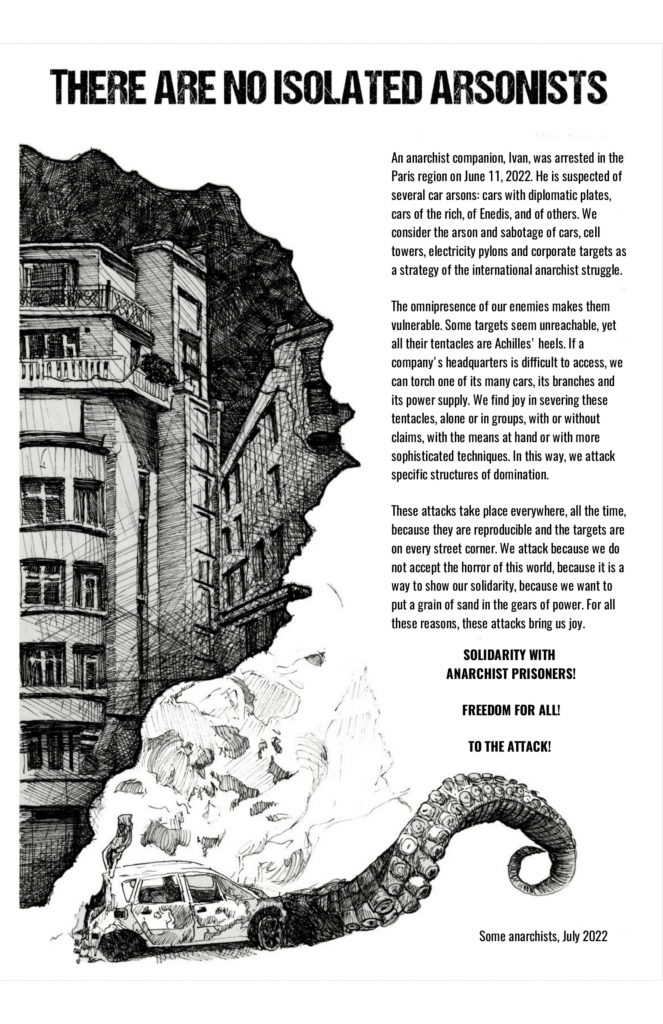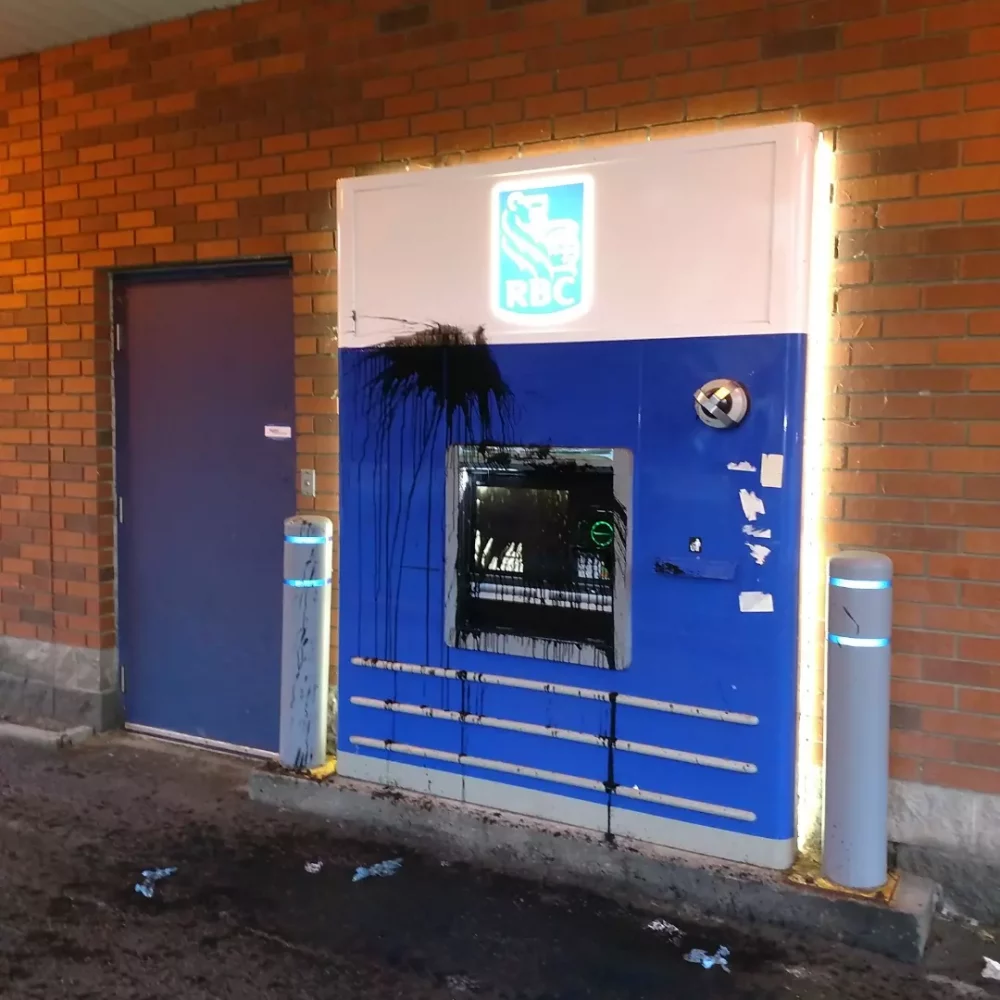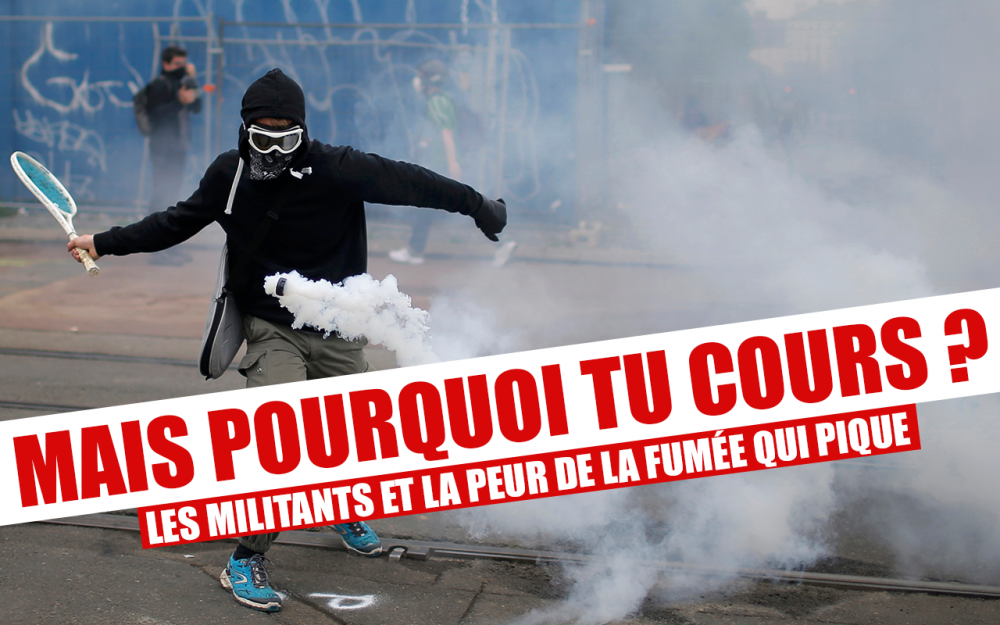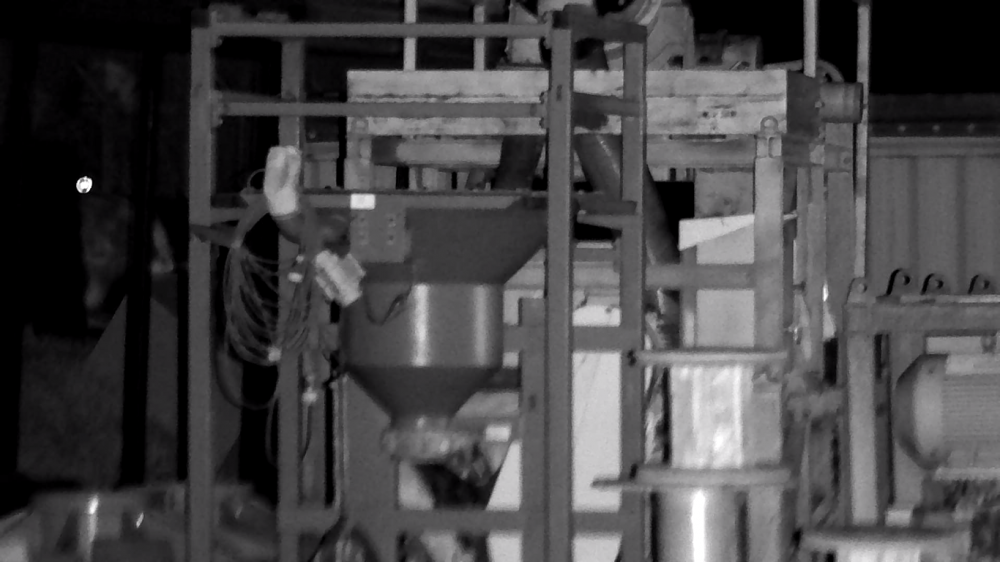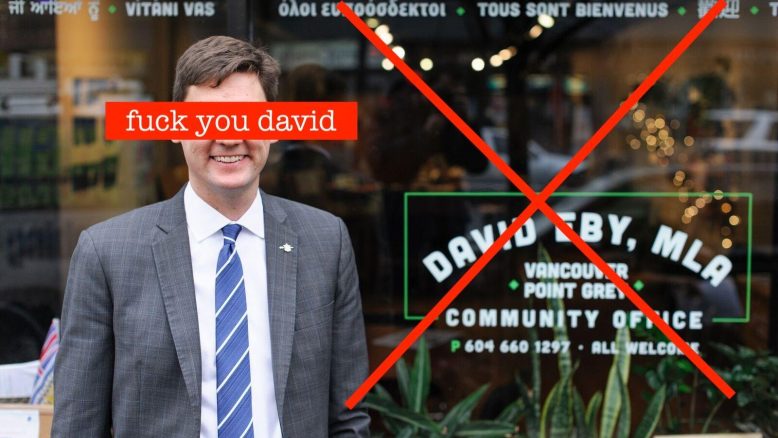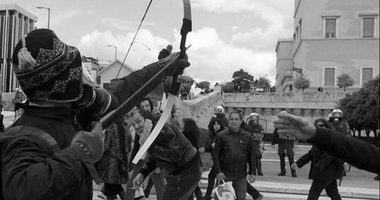Anonymous submission to MTL Counter-info
The anti-capitalist MayDay 2022 blatantly showed the limits of our offensive demonstrations. It’s a good thing that comrades were able to hit certain symbolic targets, but it’s a real problem that these attacks signaled the end of the demonstration instead of rekindling its momentum. We must therefore reflect on our means, our tactical choices, and our collective capacities.
To start off, lets be clear that it is not the attacks that cause the demonstration to disperse. Some people will always leave an event when it starts becoming more offensive but this is not so much the case here, or only very marginally. We can assume that most of the comrades present know what they are getting into, and what to expect. In the same way, the massive police presence, sometimes sticking very close to the crowd, does not prevent the event from taking place (cf. the last COBP demonstration). The fateful moment arrives with the use of tear gas.
For some reason, the stinging smoke seems to instill a nameless terror in the Montreal milieu. Gas is certainly very unpleasant and can become a real problem for some people who are more sensitive to it, but this is certainly not the case for everyone and its use in other countries does not provoke the same reactions. In other places, the gas is often more concentrated and used more generously. So the problem here is most likely a lack of training and collective solidarity. I think we can identify several interrelated factors; fear of the gas and its effects, fear of arrest, collective panic/mob movement, and local culture.
I run because you run…
The fear of gas and its effects seems at first to be quite rational. It is normal to try to get out of a painful or uncomfortable situation. However, this fear of pain or discomfort is largely disproportionate. The problem with this phenomenon is that it acts as a self-fulfilling prophecy. Everyone knows that the effects of gas tend to worsen with fear or stress, especially for people who are not used to it. The act of trying to get out of the gas at all costs paradoxically reinforces its effects by contributing to collective panic phenomena. Moreover, when desperately trying to get out of the area, we are more likely to make bad tactical choices, individually or collectively. Some people choose to leave the demonstration in small groups, under the illusion that they will be able to rejoin later. In fact, the behavior spreads and the random calls to gather elsewhere only serve to camouflage the chaotic dispersal. It seems to me that this state of affairs must be radically changed.
First of all it’s good to draw the attention of the demonstration to what the police are doing, but shouting “they are gassing” seems to have the opposite effect of what is desired. Even before seeing the pucks bouncing on the ground, a wave of panic runs through the group and those with less experience already start to run. A solution should be found so as not to indirectly reinforce the effectiveness of the police attacks. Perhaps it would be good to punctuate these calls with encouragement not to panic, to stay together, and not to run.
When the capsules are on the ground, rather than trying to get away from them, it should be common practice to move them away from the demonstration, or even to return them to the sender (the cops on bicycles did not have masks on May 1st and seem to have been quite inconvenienced by the gas). When some people did try to move the capsules away, most of the observed attempts were to kick the capsules towards other parts the demonstration, even if this was not the objective. The intention of these comrades is good, but their initiative is made very complicated by the fact that the demonstration is already starting to break up, that the area to protect is becoming blurred, and that they risk finding themselves isolated.
Once the gas starts to spread, let’s invite the more panicked among us to take a second to analyze the situation. Is the gas really that bad? Are the police really getting too close? Does it look like they are targeting people or preparing to make arrests? Does it look like they are trying to set up a trap? If none of these conditions are met, running will only make the situation worse. Instead, we can stick with our buddy, stay with the group, follow the front banner, and try to remain calm to not to worsen the effects of the gas. To escape in small groups is an individualistic solution to a collective safety problem.
Of course, sometimes it is necessary to run, but again, there is no need to start a panicked sprint if the cops are not on your tail. In most cases, it is enough to jog a few dozen meters to get out of a dense cloud or to get out of the riot squad’s reach. Not running too fast also contributes to maintaining the coherence of the demonstration, prevents slower comrades form falling behind, and avoids the targeting of isolated individuals.
But… I run because YOU run…
The risk of arrest has been discussed above, but it seems important to return to it in more detail. This fear is much more legitimate than just the fear of gas. Getting caught can have serious consequences for the lives of comrades, especially if they have carried out offensive or criminalized actions. Again, it seems that the solution everyone chooses is to try to get out alone, or with their small group.
It should be remembered that currently the cops are trying to target certain people from the demo, but rarely the crowd as a whole. By running around unreasonably, we make their work easier; individuals and small groups are isolated, changing as best they can, without any protection, with the omnipresent risk of being arrested, especially for the slowest or least discreet. This provides opportunities for the police, whether the person has done anything or not. Most of the time the riot police charges are just to make us run or back up. Due to their heavy equipment, they will not try to follow us for long; their tactic is essentially to scare us by shouting “Boo!”.
However, there is no simple solution for how to resolve this issue of fear of the police and the lack of trust between comrades. It is a matter of learning to work together to develop the solidarity that is sorely lacking. It is also necessary to train collectively and to participate as groups so that there is a critical mass of people who know each other and are familiar moving together, to prevent our demonstrations from descending into “everyone for themselves”.
Should we stop running then?
It is therefore necessary to speak here about the question of collective panic and crowd movements. We have seen that these demonstrations exhibited patterns of irrational behaviors (fear of gas, arrests etc.) which provoke a form of collective panic. In my opinion this is the main danger in our demonstrations, before the police and their weapons. We should not be surprised by police brutality, arrests and trials. All revolutionary militants know these risks or have experienced them. Nevertheless, most of us began our involvement with the idea that collective force was the way to make change. But these moments of individualistic breakdown are a blow to the beautiful myth of solidarity in our movements; when the going gets tough, it’s every person for themselves and then we’ll see each other afterwards. For new people, this can put them off organizing with us for good. This problem on its own should encourage us to find solutions but unfortunately it is not the only one.
A crowd movement caused by panic can be particularly dangerous and difficult to stop. The size of the demonstration makes the danger limited in our case and should not cause any deaths. Nevertheless, it is not difficult to imagine that serious injuries could be caused by the movement of people trying to escape from the gas and/or the police; pushing and shoving making people fall down, trampling of people who have fallen on the ground, not to mention the inherent dangers of traffic.
It is very difficult to stop these kind of panicked movements once the phenomenon spreads through the group. Everyone has experienced it, it starts with a few people running or shouting and soon the panic spreads like a wave through the group to the point that even cool-headed people are forced to run or become isolated (thus participating in the reproduction of the phenomenon). It is essential to try to nip this panic in the bud. We must calm our panicking comrades and make them come to their senses. We must refrain from running as long as possible and regularly call on everyone to remain calm, grouped, and united.
…I’m lacking trust…
Here we must point out the underlying problem of everything that has already been raised; the lack of a culture of collective resistance that encourages united behavior. It is still incredible that, in a city that has so many revolutionary militants, better coordination is not possible. The lack of practice is definitely a factor, as offensive demonstrations are not so frequent throughout the year, but the problem remains. The work carried out by certain groups to organize these moments is disproportionate in relation to the duration and impact of the event. It is the responsibility of everyone to make the best use of these dates that we impose on the calendar of our enemies; 20 minutes of attacks in the city center should not be enough to satisfy us, nor should the disconcerting ease with which the police are able to stop the problem. Far from coming out of it energized, I am instead assailed by a feeling of great collective weakness. Comrades should forgive this conclusion which contrasts with the usual post-demo self-congratulations, but this text does not seek to play the role of a press release. There are clearly problems, and it is important that we address them collectively.
